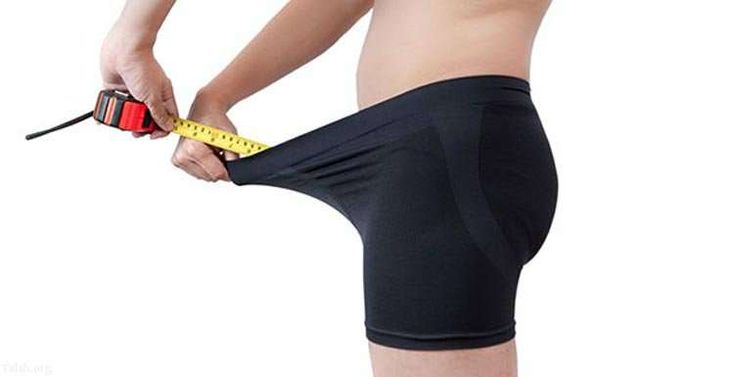
Living with diabetes brings a unique set of health challenges that affect nearly every system in the body—including sexual health. One of the more sensitive yet increasingly discussed topics among diabetic men is the option of penile enlargement. This procedure has gained popularity among men seeking more confidence and improved self-image. However, when diabetes is involved, extra care, consideration, and consultation become essential. For those exploring Penile Enlargement in Islamabad, understanding how the condition interacts with surgical and non-surgical options is crucial.
This blog delves into whether penile enlargement is suitable for men with diabetes, highlighting the precautions, available procedures, risks, and how to make a safe and informed decision.
Understanding the Relationship Between Diabetes and Sexual Health
Diabetes, particularly when uncontrolled, can significantly impact sexual function. High blood sugar levels damage blood vessels and nerves, reducing blood flow and sensitivity in the genital area. This condition, known as diabetic neuropathy, can lead to:
-
Erectile dysfunction (ED)
-
Decreased libido
-
Delayed ejaculation
-
Reduced penile sensitivity
While medications and lifestyle changes can help manage these issues, some men consider penile enlargement to regain confidence or address long-standing concerns about size and function. However, diabetes adds complexity to the equation.
Types of Penile Enlargement Procedures
Before assessing suitability, it’s important to understand what options exist:
1. Surgical Procedures
-
Penile Lengthening: Involves releasing the suspensory ligament to add visible length.
-
Girth Enhancement: Fat grafting or dermal fillers are used to increase circumference.
-
Penile Implants: Often used in men with ED, particularly those with diabetes-related damage.
2. Non-Surgical Procedures
-
Dermal Fillers: Injected beneath the skin to add volume. Results are temporary but immediate.
-
Traction Devices: Used over time to stretch penile tissues. These are non-invasive but require consistent use.
Are These Procedures Safe for Men with Diabetes?
The short answer is: yes, but with strict conditions. Diabetic patients are not automatically disqualified from penile enlargement, but their health status must be thoroughly evaluated.
Key Considerations:
1. Blood Sugar Control
Poorly controlled diabetes increases the risk of complications like infection, poor wound healing, and prolonged recovery. Before any procedure, blood glucose levels must be stable—typically confirmed through HbA1c testing. An ideal range is below 7.0%.
2. Immune Function
Diabetes compromises immune response, meaning the body takes longer to heal and is more prone to infections. Surgeons may recommend antibiotic precautions and close monitoring during recovery.
3. Vascular Health
Since penile function and enlargement rely heavily on healthy blood circulation, diabetic men with severe vascular damage may not be ideal candidates for certain procedures. Ultrasound or Doppler imaging might be recommended before surgery.
4. Neuropathy and Sensitivity
If the patient suffers from nerve damage in the penile region, they may experience altered sensations post-procedure. It’s important to set realistic expectations about outcomes and sensations.
Benefits of Penile Enlargement for Diabetic Men
Despite the risks, many diabetic men still qualify for and benefit from penile enlargement when done under professional supervision.
1. Improved Confidence
A history of erectile dysfunction or performance anxiety due to diabetes can take a toll on self-esteem. Penile enlargement may help rebuild body image and sexual confidence.
2. Enhanced Sexual Experience
While enlargement does not directly cure erectile dysfunction, girth enhancement (especially with fillers) can improve sexual sensation and satisfaction.
3. Personal Satisfaction
Some diabetic men seek enlargement for purely aesthetic reasons. If health allows, fulfilling this desire can contribute to a more positive self-perception.
Candidacy Criteria for Diabetic Men
To be considered a good candidate for penile enlargement, diabetic patients typically must:
-
Have well-controlled blood sugar (HbA1c < 7.0%)
-
Be free from active infections or skin conditions
-
Have no severe cardiovascular complications
-
Not smoke or consume excessive alcohol
-
Maintain healthy weight and lifestyle habits
Your urologist or surgeon will review your complete medical history, medications, and current health status before approving you for the procedure.
Risks Specific to Diabetic Patients
All patients face some risks with penile enlargement, but men with diabetes should be especially aware of:
-
Infections: Higher likelihood due to impaired immune response
-
Delayed Healing: Especially with surgical methods
-
Scarring or Fibrosis: Poor healing may lead to excessive scar tissue
-
Implant Rejection or Malfunction: In rare cases, penile implants may not integrate well with diabetic tissue
-
Temporary Loss of Sensation: Especially in cases of pre-existing neuropathy
Discuss these risks thoroughly with your specialist to make an informed choice.
How to Prepare for the Procedure
If you’re a diabetic man considering penile enlargement, preparation is key:
-
Consult Both Endocrinologist and Surgeon: Your diabetes specialist and cosmetic surgeon should coordinate your care plan.
-
Stabilize Blood Sugar: This may involve medication adjustments, diet changes, or lifestyle improvements.
-
Quit Smoking: Smoking impairs circulation and delays healing—critical factors in enlargement recovery.
-
Start a Fitness Regimen: Even mild exercise helps improve vascular function and insulin sensitivity.
Post-Procedure Care for Diabetic Men
Recovery may be more delicate for men with diabetes, but proper post-op care can greatly reduce risks:
-
Monitor blood sugar regularly
-
Follow wound care instructions precisely
-
Avoid strenuous activity and sexual activity until cleared
-
Attend all follow-up appointments
-
Report any signs of infection or unusual pain immediately
Surgeons may extend the recovery timeline slightly for diabetic patients to ensure safe and optimal healing.
Conclusion
Penile enlargement can be a safe and rewarding option for men with diabetes, but only with the right preparation, medical supervision, and realistic expectations. Whether you’re exploring enhancement for confidence, intimacy, or personal satisfaction, it’s vital to consult qualified professionals who understand both the cosmetic and medical complexities of your condition.
If you’re looking to explore your options in a trusted, discreet, and medically supervised environment, the experts at Dynamic Clinic are ready to guide you.







